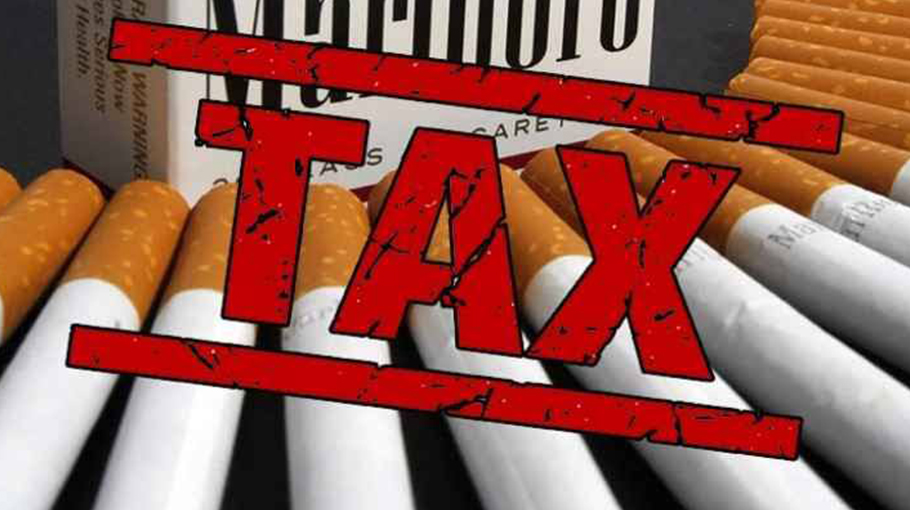Economic and public health benefits of higher tobacco tax

The well-being of our country is heavily reliant on the state of its public health and economy. However, tobacco poses a significant menace to both. As we see in the World Population Review 2023, among 148 countries, we are ranked 8th in terms of the number of smokers, with more than 39% of adults consuming tobacco products. This high prevalence of tobacco use has severe consequences for public health. Raising the tax and price of tobacco products can provide a viable solution to tackle this problem.
Tobacco use is a leading cause of preventable deaths worldwide, and it is responsible for a wide range of Non-Communicable Diseases, including cancer, cardiovascular disease, and respiratory diseases. These diseases not only cause immense suffering to individuals and their families but also place a considerable burden on our healthcare system and our economy. Every year 1 lakh 61 thousand people die in Bangladesh due to tobacco-related diseases. In addition, tobacco cost our economy approximately 30 thousand 560 crore taka annually. On top of that, recent research has shown that the government may lose revenue of around 5,500 crore taka in the fiscal year 2022-23.
Some of the most effective ways to reduce tobacco use is through tax and prices increases, behavior change among population, and tobacco law amendment with its practical application. Higher taxes on tobacco products make them more expensive, which leads to a decrease in consumption. Studies have shown that increasing the price of cigarettes by 10% reduces overall cigarette consumption by about 4% among adults and 7% among youth. This reduction in consumption leads to significant health and economic benefits, including fewer tobacco-related illnesses, lower healthcare costs, and increased productivity.
Moreover, higher taxes on tobacco products can also generate significant revenue for the government. Recent research finds that if we introduce a specific and uniform tax rate reforming the tax system and increase the minimum price across all brands in FY 2023-2024, we would increase the tax revenue by 9,600 crores taka which is a 30% increase to the current tobacco tax collection. In Bangladesh, where the healthcare system is underfunded, this revenue can be used to fund anti-tobacco campaigns, public health initiatives, and healthcare programs. This not only helps to offset the costs of tobacco-related illnesses but also provides much-needed funding for essential services.
We often see propaganda against tobacco taxation, with some arguing that tobacco taxation could have a negative impact on employment rates and potentially increase the unemployment rate. However, according to a study conducted by National Board of Revenue (NBR), there are only 47,000 Bidi workers employed in the tobacco industry of the country. If we include the number of workers involved in cigarette production, it still appears that less than 1 percent of the country's workforce is employed in the formal sector of the tobacco industry.
Some critics argue that raising tobacco taxes disproportionately affects low-income individuals and can lead to a rise in black-market tobacco products. However, studies have shown that while low-income individuals are more likely to smoke, they are also more responsive to price increases and more likely to quit smoking as a result. Additionally, the black-market argument is not supported by evidence. There are no studies that have shown that tax increases lead to an increase in the illicit tobacco trade.
The tobacco industry wields significant influence in Bangladesh, and because of that implementing tobacco tax increases has been a challenge. However, the benefits of raising tobacco tax and prices far outweigh any potential drawbacks, including increased revenue for the government, reduced healthcare costs, and increased productivity. We must take a bold stance and prioritize public health over the interests of the tobacco industry.
Raising tobacco taxes and increasing prices has been proven to be an effective strategy for reducing tobacco use and safeguarding public health. During the ‘South Asian Speakers’ Summit’ held in Dhaka in 2016, our Honorable Prime Minister Sheikh Hasina also directed to simplify the tobacco duty structure.
We should impose a specific supplementary duty on all grades of cigarettes instead of using a percentage-based supplementary duty. I believe, this change in the duty structure will simplify the tax collection process, reduce tobacco use, save lives, increase revenue, and improve the overall health and well-being of the nation.
Dr. Nizam Uddin Ahmed is Executive Director, Shastho Shurokkha Foundation and
Vice-Chair, GAVI CSO
Steering Committee



